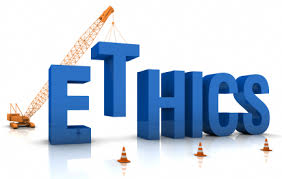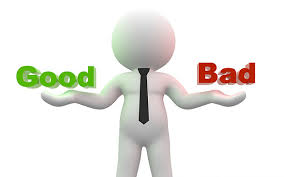The Person (Idea) of the Year – Corporate Ethics and Culture
 Each year I have identified the so-called “person” of the year to capture the most significant enforcement and compliance trend. In the past, I have given the award to the Chief Compliance Officer, the Ethics Officer, the Prosecutors, and others.
Each year I have identified the so-called “person” of the year to capture the most significant enforcement and compliance trend. In the past, I have given the award to the Chief Compliance Officer, the Ethics Officer, the Prosecutors, and others.
This year is not an easy choice. In my view, there have been three significant events or trends, each of which could easily be named for its impact.
First, and perhaps really the most significant development, was the issuance of the Yates Memorandum. It would have been easy to select the Yates memorandum because it will have an impact not only on FCPA enforcement but across DOJ’s criminal enforcement responsibilities, including antitrust, AML/sanctions, fraud, environmental crimes, and other areas as well.
Anyone who belittles the Yates Memorandum does not understand how DOJ and criminal prosecutions are initiated, managed, and brought to conclusion. Line prosecutors and line agents bring cases together through effective working partnerships. Line prosecutors report to immediate supervisors, who in turn report to supervisors and so on. A DOJ policy pronouncement is implemented all the way down at the line level. It has an impact – and the Yates Memorandum will certainly have an impact on line prosecutors and their investigations and evaluations. In the end, the impact of the Yates memorandum will take time, at least a year, to see a noticeable impact. For that reason, I thought it was premature to call the Yates Memorandum the event of the year.
Second, this has definitely been a big year for the SEC and its FCPA enforcement program. While the Justice Department has been tangled up in bureaucratic twisting, largely caused by individuals in political positions, the SEC has stayed a steady course and brought individual enforcement actions for the first time since 2012. The SEC’s FCPA enforcement program was consistent, targeted, and arguably effective in sending a message to companies, senior executives, and compliance officers. In the end, while effective, the SEC’s program was not so significant a change in course that it merited a yearly award.
Finally, we have come to the selection – drum roll please: corporate ethics and culture. The rise of compliance as a corporate governance function has been steady and strong. The concept of compliance, however, is evolving. At first, the focus was on legal compliance and ensuring that the company avoids government enforcement. The design and implementation of relevant internal controls was an essential aspect of this process.
The notion of regulatory or legal compliance transformed itself when business leaders and compliance officers began to examine culture and values as a meaningful control, especially considering the lower cost inherent in culture versus elaborate compliance formulas, mechanisms, and controls.
Corporate leaders, along with CCOs, began to dust off research, ideas, and ethical principles and examine them as a cost-effective compliance strategy. Here, the research demonstrated repeatedly that companies with ethical values and principles were more profitable in the long run and more effective in restraining employees from engaging in misconduct. Ethical principles became a new foundation for a company’s ethics and compliance program.
Along with this reformulation of priorities, companies and CCOs are still seeking to elevate culture as a compliance control. Such a redesign of compliance priorities means a reallocation of resources, revisions in board reporting focus and a readjustment in the overall compliance program. In time, this trend will continue to dominate compliance programs.
Why am I so confident?
 Compliance has a huge responsibility (how’s that for an understatement?). Unless compliance moves out of tinkering with control and minutia related to controls (e.g. gifts, meals, and entertainment), compliance will inevitable be unsuccessful in its mission to transform corporate governance, and may be relegated to backwater influence and responsibilities.
Compliance has a huge responsibility (how’s that for an understatement?). Unless compliance moves out of tinkering with control and minutia related to controls (e.g. gifts, meals, and entertainment), compliance will inevitable be unsuccessful in its mission to transform corporate governance, and may be relegated to backwater influence and responsibilities.
The future of compliance depends on effective ethics and culture management. Sure, there will always be the latest fad or technical gadget, but in the end, compliance has limited resources and has to allocate them most effectively. A company dedicated to promoting its ethical culture will maximize financial profits from a positive culture, and minimize the risk of enforcement actions by reducing employee misconduct.
This year has seen a significant transformation in the importance of company culture. It is up to CCOs to recognize this new trend, push for it at the board level, and bring new attention to the issue.
















As always, Michael, I enjoy your posts exhorting CCO’s to press corporate culture as a real value-add of the E&C function. I have noticed, however, that your articles consistently refer to the CCO in the singular (that is, as an individual). Perhaps this is just short-hand for the entire E&C function, but I think it’s important to note that most CCO’s have a team around them, and the team should be heavily involved in all of these efforts. True, the CCO may be the one who’s seeking equality with the CEO and CFO and is generally the one who’s appearing before the Board. But providing authority, resources, and support for the CCO means empowering his or her team to carry out (or to help carry out) virtually every critical function of the office. I think the message is the same, and I would hate to have all of your non-CCO readers (such as myself) feel left out of the discussion.